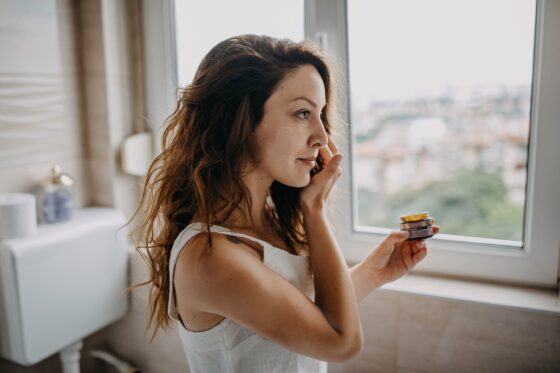
Facial care, body exfoliation, knowing how to choose clothes that improve: socio-aesthetics, originally created to comfort sick people, increasingly focuses on the professional integration of the most precarious.
Aurore Fayolle, socio-beautician in Tours (Indre-et-Loire), has been practicing for ten years, having been a beautician. The difference between these two professions? “Socio-aesthetics helps patients” and no customers. Organizations, such as Pôle emploi or associations, recruit socio-aestheticians to provide free care to precarious people: “Young people, people with disabilities, not at work, sick”explains Aurore Fayolle.
“If someone drops out, we work on hygiene to take care of ourselves. It’s important for someone to realize that it feels good to get dressed every morning to get out of the house.”
For her, the care has a long-term effect: “I often meet men who have let themselves go, haven’t shaved for a long time. After a theoretical and practical reminder, they resume the habit of doing it.”
“Color Heals”
If the care provided is “for everyone else”, they pursue a common goal: to regain confidence and reintegrate, Ms Fayolle recalls. A disability or illness can also lead to withdrawal. The Etincelle association, in Paris, accompanies “hundred women”, some of whom are in a very precarious situation, sick or ex-ill with cancer, through various workshops. On Wednesdays, Christelle Panek, socio-aesthetician, offers one-hour treatments.
“Some are on the street”, she says. Thus, the care is an opportunity for them to confide in their private lives, or professionally for those who have a job.
Under the beams, in the converted cellar of the association’s premises in the 11th arrondissement of Paris, “many patients come dressed in black at first, but the color heals, it’s important to bounce back”, assures the socio-aesthetician. The patients supported by the association are: “younger and younger”, assures its chairman, Catherine Adler Tal. That is why this reintegration aid is crucial.
Care and CV
Appeared in France in the 1970s to provide comfort care for the sick, socio-aesthetics has boomed in recent years and is reaching a wider audience. Covid-19 has accelerated the trend: “We see that more people are in pain, the structures are increasingly appealing to us”says Aurore Fayolle.
For more than ten years, the Joséphine association has supported women who are often beneficiaries of Active Solidarity Income (RSA) or without income, by offering them care. In 2020, she decided to move on and create a program called “Estim’Emploi”a combination of aesthetic care and integration workshops.
For six months, these precarious women enjoy care in the living room of the association in Barbés, a working-class neighborhood in Paris, but not only: they “develop and implement a vocational or training project”, explains Amélie Mouret, project manager. On the menu: hairdressing and make-up, but also skills assessment, job finds, CV writing, interview simulations, etc.
These women far from work “are often isolated”, she says. The program allows them to “find a group” while reconnecting with themselves during moments of care. “We learn to deal with stress, emotions, everything that can cause problems in professional integration”† Of the 54 women who completed the course, “40% have a job and 18% are in vocational training”says Amelie Mouret.
(AFP)